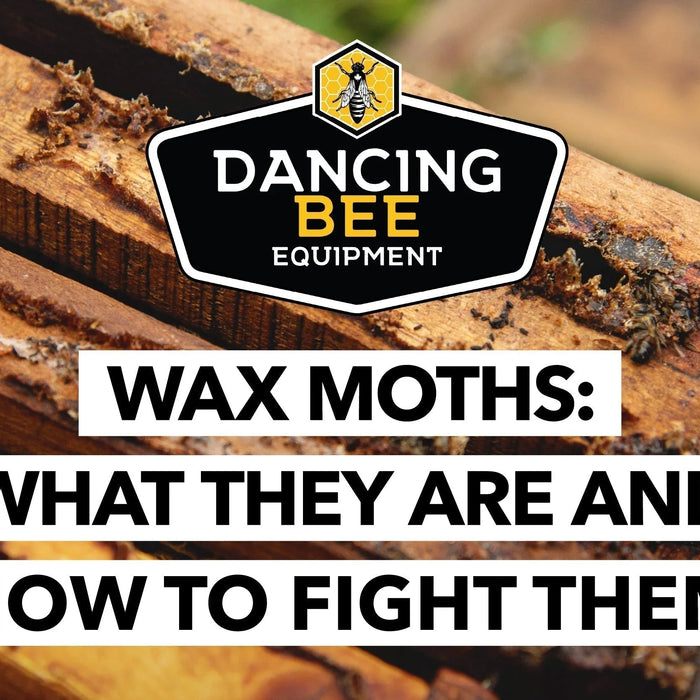Why Do We Winterize Beehives?
Winterizing a beehive is a crucial step for beekeepers to help honeybees survive the cold months. Bees in the wild have an average colony lifespan of only 1-2 years, often succumbing to harsh conditions or pests before being replaced by other colonies. By winterizing, we give our bees a better chance to endure the winter and thrive come spring.
What Happens Inside the Hive in Winter?
When the cold sets in, the bees form a winter cluster around the queen to keep her warm. Worker bees in the cluster "shiver" their flight muscles to generate heat, maintaining the core temperature of around 33°C (91°F) for the queen's survival.
-
Winter Bees vs. Summer Bees: Unlike summer bees, which live only 6 weeks due to their demanding tasks, winter bees can live for months. They produce higher levels of a compound called vitellogenin, which helps them store energy for the long winter months.
-
The Winter Cluster: As temperatures drop below 15°C (59°F), bees cluster tighter around the queen. They constantly rotate, moving from the colder outer layer of the cluster to the warmer inside to avoid freezing. If temperatures rise above 10°C (50°F), they may leave the hive for cleansing flights to avoid defecating inside the hive.
Preparing for Winter: What to Keep in Mind
-
Population Size: A healthy hive needs enough bees to form a strong winter cluster. Winter bees, laid by the queen around late August, live longer than summer bees, and their sole purpose is to survive the winter and help the hive restart in spring.
-
Queen Status: Before winter hits, ensure your hive is "queen-right" (i.e., has a healthy queen). If not, you may need to requeen or combine weaker hives to boost their chances of survival.
-
Health Check: Check your hive’s mite count and take action if needed. High mite levels can decimate a hive over the winter.
-
Food Stores: Hives need enough stored honey or sugar syrup to make it through the winter. Whether you run a single or double brood system, check if they have at least 85 lbs. of honey. For a double brood system, ensure the brood is in the bottom box, and for a single brood system, make sure it is in the center of the box. The queen needs room to lay her winter brood.
Why Keep Feeding Sugar Syrup?
As bees prepare for winter, outside food sources disappear. At this point, feeding your bees sugar syrup can be more effective than relying solely on honey stores. Honey is valuable, but it can be harder for the bees to digest in cold weather. Sugar syrup provides a readily available energy source without the complexity of honey digestion, especially when temperatures drop.
Essential Steps for Winterizing Hives
-
Move Your Hives if Needed: Relocate hives to a sheltered spot or provide a windbreak.
-
Ensure Ventilation: Proper airflow helps control moisture.
-
Reduce the Entrance: Smaller entrances prevent cold drafts and deter pests.
-
Combine to 1 or 2 Brood Boxes: The bees need space for food, but also a manageable area to keep warm.
-
Wrap the Hive: Use products like Bee Cozy, BeeDry, Hogan Wraps, Wellington Wraps, or Hive Huggers to insulate the hive, keeping heat in and wind out.
-
Feed Them: Provide supplemental food, such as sugar syrup or fondant, especially when natural sources are unavailable.
-
Check on Them: Periodically check for signs of life (like dead bees being cleared out or cleansing flights).
-
Plan for Spring: Don’t stress too much! Every beekeeper experiences winter losses. Learn from them to improve for next year.
Choosing the Right Winter Wrap
-
Bee Cozy: A polypropylene wrap with fiberglass insulation that protects from freezing temperatures and conserves feed stores.
-
Hogan Wraps: Made with UV-resistant polyethylene and insulated with foil bubble wrap, these wraps are lightweight, non-absorbent, and effective.
-
Wellington Wraps: Made from durable 4mm black polypropylene with 5% UV protection, Wellington Wraps are lightweight and designed to fold flat for easy storage. The material is highly resistant to water absorption, and can withstand extreme temperatures making it ideal for keeping hives dry and warm during winter.
-
Hive Hugger: This outer winter wrap is designed for tough, frigid weather. Made from the most effective insulation material ever created, the high R-value Crown panel keeps the top of the hive above the dew point, allowing condensation to occur instead on the cooler sides. This keeps your bees warm & dry.
Should You Open Hives in Winter?
It’s best to avoid opening hives in cold weather (below 14°C/57°F). Brief checks for signs of life can be done by observing dead bees outside the hive or evidence of cleansing flights (brown streaks). If needed, provide emergency food like Hive Alive Fondant to get them through the cold months.
Why Some Hives Don’t Survive
Even with the best efforts, not all hives make it through winter. Potential reasons for loss include starvation, moisture issues, weak colonies, pests, or disease. Inspecting failed hives in the spring can help you learn from the losses and improve your practices for the future.
Common Causes of Winter Colony Death:
-
Mites: Varroa mites are one of the leading threats, weakening bees and spreading diseases.
-
Moisture: Excess moisture inside the hive can lead to mold or freezing conditions.
-
Starvation: If the bees run out of food, they won’t survive the winter.
-
Mice/Other Pests: Pests like mice can invade hives, damaging comb and consuming honey stores.
-
Disease: Bacterial and viral infections can take hold in the cold months when bees are stressed.
Winterizing your hives is essential to ensure your bees survive the cold months and emerge strong in the spring. By understanding the needs of your colony, monitoring their health, and providing proper insulation and food, you can help them thrive through winter. With the right preparation, your bees will be ready to restart their vital work when warmer days return.




